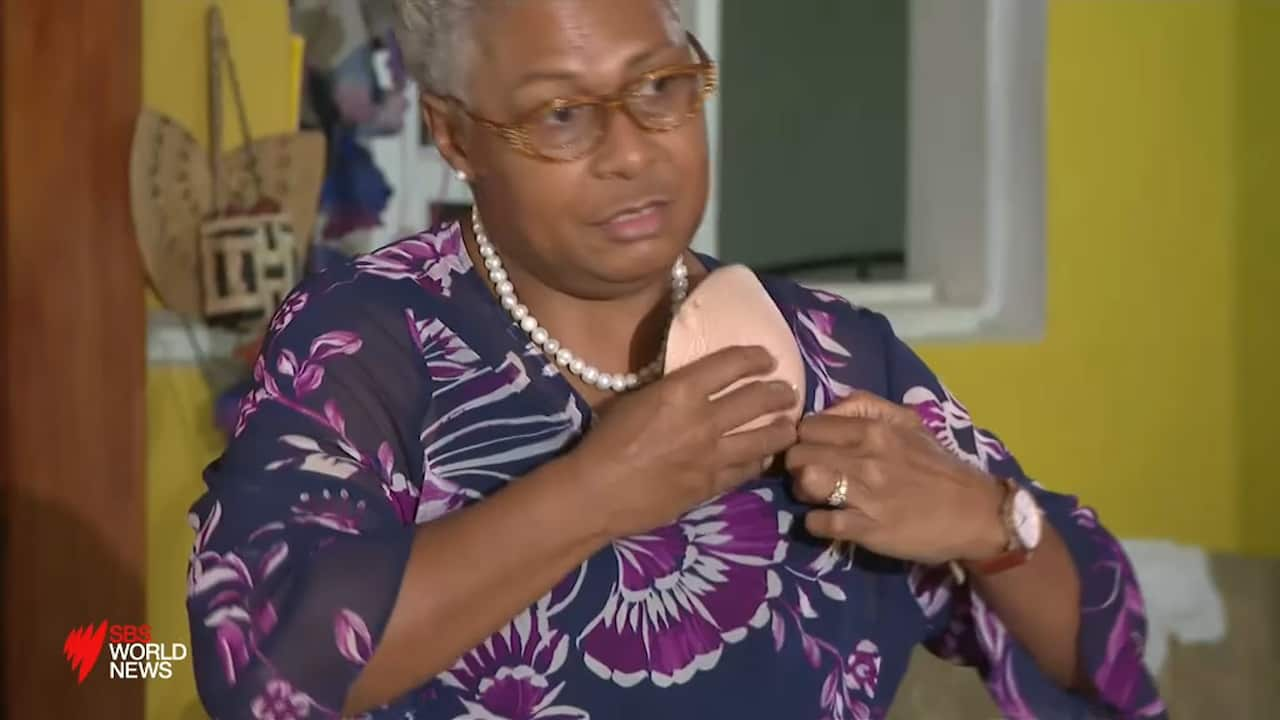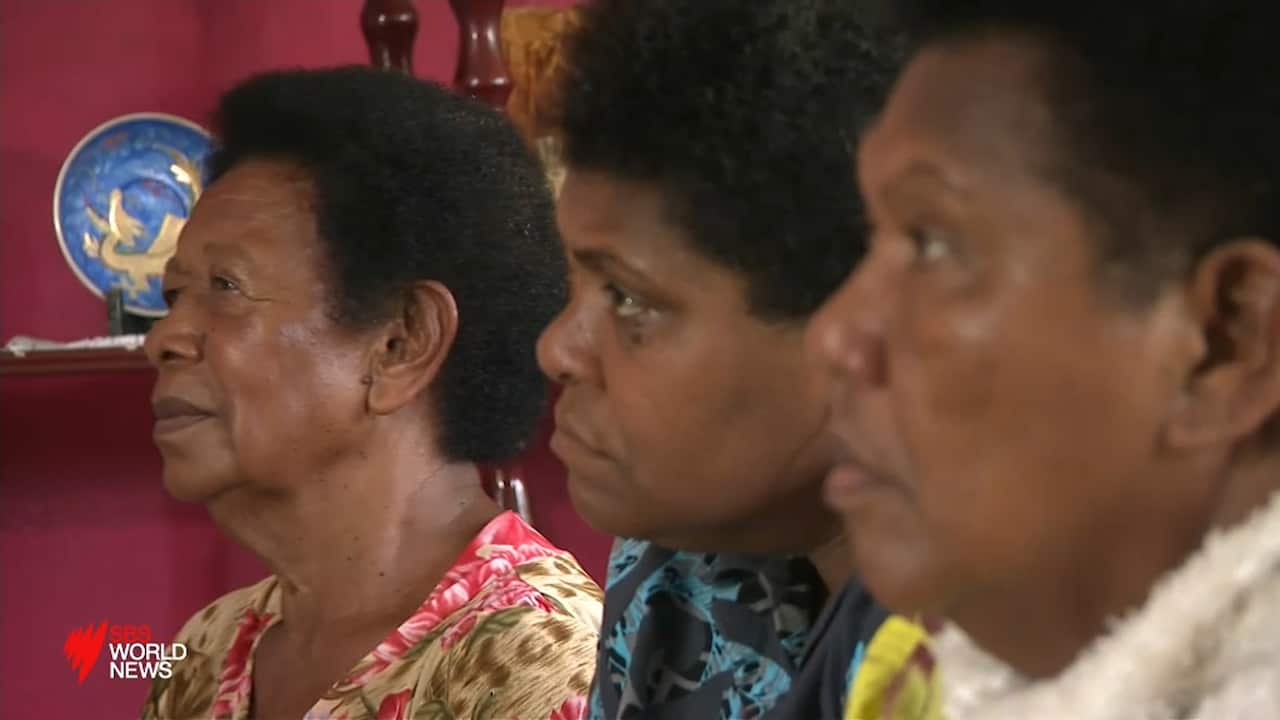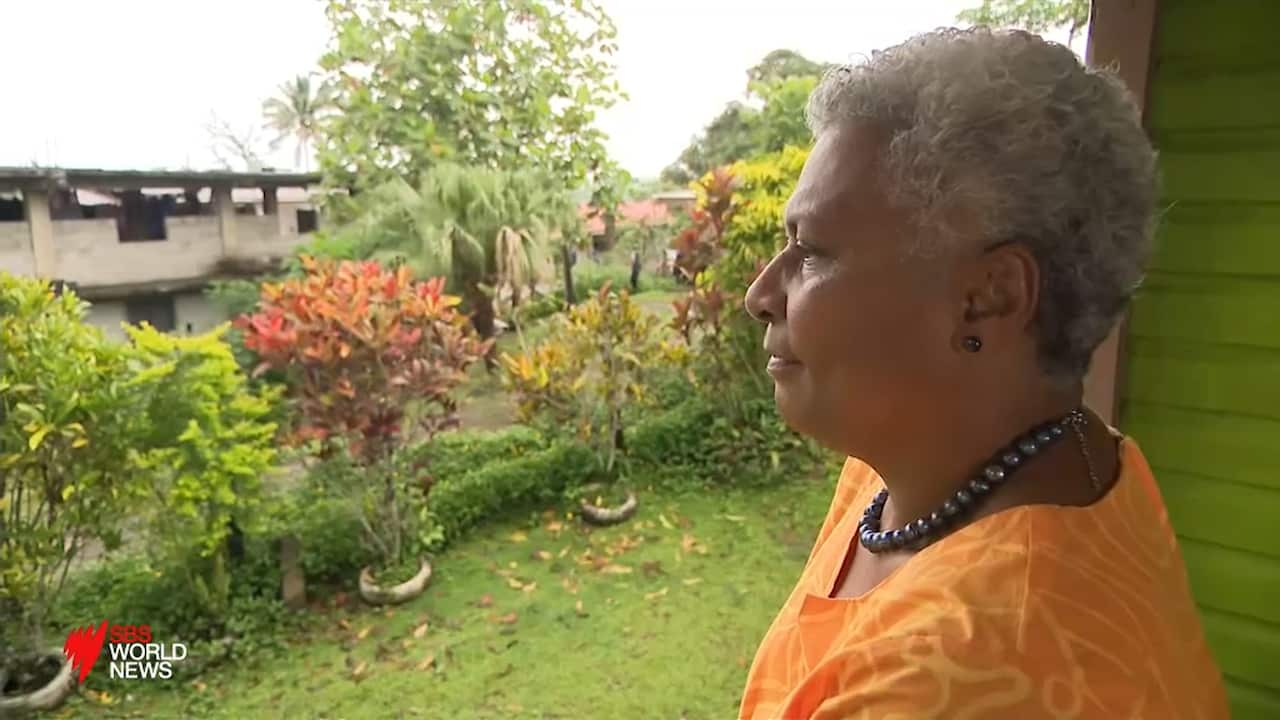In the rural village of Cautata, east of Suva, a small group of women gather in a living room to discuss something rarely spoken about; their breasts.
With poise and confidence, Mereoni Taginadavui, 57, stands in front of the group, puts her hand inside her shirt and promptly pulls out her breast prosthesis.
“I stand here with one breast,” Ms Taginadavui tells the women.
“If I’m going to be very specific, I’ve got a bare chest because what I’ve got on here, is what we call a prosthesis.”

Breast cancer survivor Mereoni Taginadavui. Source: SBS News
For most in the room, it’s the first time they’ve seen a silicon pouch like it, and that’s exactly the shock factor the stage 3 breast cancer survivor is hoping for.
“It is when I pull up my shirt or I pull it down and I show them I have one breast, that is when the message resonates better, because they’ve seen women die,” Ms Taginadavui tells SBS News.
Treatment barriers
Breast cancer is the most common cancer in Fiji. The country has the eighth highest death rate from breast cancer in the world. But patients have to travel overseas to access radiation treatment.
Fiji came 131st on 2018's , which ranks nations in terms of access to and quality of healthcare. Australia was ranked fifth, so it’s no surprise it became an election issue in Fiji – where the votes will soon be counted.

Women listen and discuss their experiences of breast cancer. Source: SBS News
Prime Minister Frank Bainimarama’s FijiFirst party campaigned on a healthcare platform of lengthening hospital opening hours and retaining more doctors.
The sector was also on the minds of voters in the rival SODELPA party that SBS News spoke with in the lead up to the vote.
Ms Taginadavui and the Fiji Cancer Society want to challenge misconceptions that lead to more than 50 per cent of women not seeking further medical treatment after diagnosis.
Many women opt for alternative medicines or even massages instead.
The group discussion turns at one point to the opinion and sway of husbands who advise against their partner losing a breast.

Ms Taginadavui wants to challenge misconceptions about breast cancer. Source: SBS News
Ms Taginadavui speaks to at least two groups a week, spreading awareness about other diseases including prostate and cervical cancers.
She was diagnosed while on a trip to the United States in 1999 and received what she described as “the best treatment in the world.”
The stark contrast with the lack of awareness in her own community fuels her fire to give back.
“It was so good to see someone demonstrate it,” one of the participants in the session, Lele Wailevu told SBS News.
“You know we didn’t know a lot of things that have occurred with cancer, but now we’ve known a lot.”
Brain drain
A lack of awareness isn’t the only challenge Fiji’s healthcare system is facing, with GPs warning many recent medical graduates seek work overseas due to underfunding of the system.
Fiji-born general practitioner, Dr Krupali Tappoo was one such student.
“Everyone wants to move to greener pastures, you want to do it for the training and a lot of that wasn’t available in Fiji,” Dr Tappoo told SBS News.
But leaving Fiji for Australia in 2007 to train and work, Dr Tappoo ended up bucking the trend and returning home.
“I feel privileged that you know I’ve had the opportunity to work in a developed country and to see what is [considered] gold standard and what’s the best healthcare,” Dr Tappoo said.
“[I’m motivated] to sort of try and replicate that to some extent here in Fiji and to really give back to the people, back to the community.”
Dr Tappoo is now the director of a free medical health clinic run by the Sai Prema Foundation Fiji, which operates off government donated land and other donations.
The facility, which opened in April aims to ease the strain on overcrowded public hospitals and long wait times.










